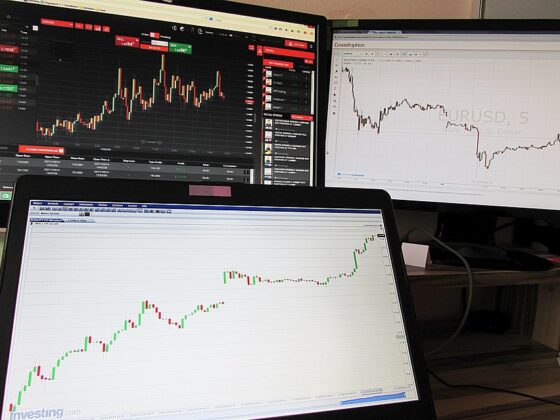Trading in the financial markets can be a lucrative endeavor, but it also comes with its fair share of risks. For beginners who are just starting out in the world of trading, it can be overwhelming to navigate the complex landscape of the markets. However, with the right guidance and expert tips, novice traders can transition into seasoned professionals.
In this article, we will provide expert trading tips for beginners looking to enhance their trading skills and experience. From understanding market trends to managing risks effectively, these tips will help you take your trading to the next level.
Understanding Market Trends
One of the most important aspects of successful trading is understanding market trends. Market trends refer to the direction in which a particular asset's price is moving over time. By recognizing and following market trends, traders can make more informed decisions about when to buy or sell an asset.
To identify market trends, beginners can use technical analysis tools such as moving averages, trend lines, and support and resistance levels. These tools help traders analyze historical price data and predict future price movements. Additionally, keeping up with market news and economic indicators can also help traders anticipate market trends.
Managing Risks Effectively
Another crucial aspect of trading is managing risks effectively. Risk management is essential for protecting your capital and minimizing losses. Novice traders should never risk more than they can afford to lose on a single trade. A common rule of thumb is to risk no more than 1-2% of your trading capital on any given trade.
Additionally, beginners should use stop-loss orders to automatically exit a trade if it goes against them. Stop-loss orders help limit losses and protect trading capital. Traders should also diversify their portfolios by trading a variety of assets and not putting all their eggs in one basket.
Developing a Trading Strategy
Having a trading strategy is essential for success in the markets. A trading strategy outlines a set of rules and criteria for entering and exiting trades. Beginners should develop a trading strategy that fits their trading style, risk tolerance, and financial goals.
A successful trading strategy should include:
– Entry and exit points: Clearly defined points at which to enter and exit trades based on technical indicators or market conditions.
– Risk-reward ratio: A good risk-reward ratio ensures that potential profits outweigh potential losses on each trade.
– Money management: A plan for managing trading capital effectively, including setting stop-loss orders and diversifying assets.
By following a well-thought-out trading strategy, beginners can improve their chances of success in the markets.
Continuous Learning and Improvement
Trading is a dynamic and ever-evolving field, and continuous learning is essential for staying ahead of the curve. Beginners should take advantage of educational resources such as trading courses, books, and online tutorials to enhance their trading knowledge and skills.
Additionally, novice traders can benefit from joining trading communities and forums to connect with experienced traders and learn from their insights. Networking with other traders can provide valuable support and guidance as you navigate your trading journey.
FAQs
Q: How much money do I need to start trading?
A: The amount of money you need to start trading depends on your trading strategy and risk tolerance. While some traders can start with a small account, others may require more capital to achieve their financial goals. It's important to start with an amount you can afford to lose and gradually increase your trading capital as you gain experience.
Q: What are the best markets to trade as a beginner?
A: The best markets to trade as a beginner depend on your interests and expertise. Popular markets for beginners include stocks, forex, and cryptocurrencies. It's important to choose a market that you understand and feel comfortable trading in.
Q: How do I know when to enter and exit a trade?
A: Knowing when to enter and exit a trade is a crucial aspect of successful trading. Beginners can use technical indicators, chart patterns, and market analysis to identify potential entry and exit points. It's important to set clear criteria for entering and exiting trades based on your trading strategy.
In conclusion, trading can be a rewarding but challenging endeavor for beginners. By understanding market trends, managing risks effectively, developing a trading strategy, and continuously learning and improving, novice traders can transition from amateurs to professionals in the trading world. Follow the expert tips outlined in this article to enhance your trading skills and achieve success in the financial markets.











